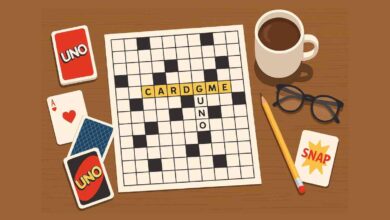Pilfer Word Game: The Strategic Battle of Words and Wits

In the ever-evolving landscape of word games, the Pilfer word game has carved out a unique niche for itself. Designed to blend quick-thinking, vocabulary skills, and a dash of cunning, it has rapidly become a favourite among casual gamers and wordplay enthusiasts alike. Whether you’re a seasoned Scrabble veteran or someone who simply enjoys a clever linguistic challenge, Pilfer offers a refreshing take on how words can be created—and stolen.
What Is the Pilfer Word Game?
The Pilfer word game is a fast-paced, multiplayer game developed to encourage creative word-building and competitive interaction. The core concept is simple yet exhilarating: players create valid words from a shared pool of letter tiles, and then attempt to “pilfer” or steal words formed by others. But stealing isn’t as straightforward as it sounds—doing so requires you to add a letter and rearrange the existing word into a new, valid one.
This clever twist on the traditional anagram format means that strategy and timing are just as important as vocabulary. The game rewards not only the ability to think quickly, but also to anticipate moves and defend your own creations from rival players.
How the Pilfer Word Game Works
The Setup
-
Each game begins with a set of 60 letter tiles.
-
These tiles appear one by one in a shared area, available for all players to use.
-
Players use these letters to form three-letter or longer words.
-
Words can be formed using new letters, or by pilfering an opponent’s existing word.
Pilfering Mechanics
To pilfer a word, a player must:
-
Add at least one letter to an existing word.
-
Rearrange the new letter combination into a new valid word.
Example:
If an opponent has created the word “meal”, you can add an “S” and rearrange to make “smile”. This not only gives you the new word but also steals their points.
The beauty of this mechanic lies in its dual reward system. When you pilfer, you gain the new word’s points and subtract the stolen word’s points from your opponent. This strategic element turns the game into a battle of both wits and timing.
Ready to play it yourself? You can play the Pilfer word game on its official platform, where real-time wordplay and competition unfold. Whether you’re a beginner or seasoned player, it takes just seconds to dive into your first match.
Scoring System
The Pilfer word game uses a simple but effective point structure:
-
The number of points equals the number of letters in the word.
-
A four-letter word earns four points, five letters earn five points, and so on.
-
When a word is stolen, the original creator loses its point value, while the new player gains the value of the upgraded word.
This system means that stealing can be more rewarding than creating new words, especially if you catch your opponent off guard with a longer transformation.
Why Pilfer Stands Out Among Word Games
While there are dozens of word games on the market, Pilfer offers some truly distinguishing features:
1. Real-Time Multiplayer Action
Unlike turn-based games like Scrabble or Words with Friends, Pilfer is played in real time. You must act quickly, observe your opponents, and decide when to build or when to steal. This live format keeps the adrenaline high.
2. Dynamic Gameplay
Because every tile appears in real-time and can be used by any player, the gameplay feels fluid and unpredictable. No two games are alike, and the opportunity to pilfer creates a constant sense of alertness and urgency.
3. Accessible Yet Challenging
The rules are easy to learn, but the depth comes from mastering the art of pilfering. Timing, vocabulary, and strategy all come into play, making it a satisfying experience for both beginners and wordplay veterans.
Modes of Play
The game offers multiple play modes, which suit different player styles and experience levels:
Public Matches
You can join a global match with random players from around the world. These matches are fast-paced and unpredictable—ideal for improving your skill against real opponents.
Private Games
Create a private room and invite friends or family. This is perfect for casual gaming sessions or for those looking to enjoy the game in a less competitive environment.
Solo Practice
For those looking to sharpen their skills, solo practice against computer opponents or timed challenges offers a good space to learn without pressure.
Winning Strategies in the Pilfer Word Game
Success in the Pilfer word game isn’t solely about having a strong vocabulary. To consistently win, players need to develop a set of strategies that blend offence, defence, and observation.
1. Prioritise Steals Over Fresh Words
Stealing not only earns more points (due to subtracting from your opponent), but also removes their progress. Look for vulnerable words and upgrade them quickly.
2. Build Words That Are Hard to Steal
If you’re forming a new word, think about how easy it would be for someone to add a letter and create something longer. Opt for odd or less common word endings to reduce stealability.
3. Think Ahead
Don’t just look at the current word—visualise what it could become. If you form “rate”, someone could easily create “stare” or “retail”. Consider alternatives that leave fewer open doors.
4. Stay Calm Under Pressure
As tiles run out and time ticks down, it’s easy to panic. But maintaining focus in the last 30 seconds can help you snatch a decisive win with one or two well-planned steals.
Who Should Play the Pilfer Word Game?
Pilfer is ideal for a wide audience:
-
Vocabulary lovers: If you enjoy playing with words and stretching your lexical abilities, this game is for you.
-
Strategists: If you love chess, poker, or any game that requires anticipating your opponent, you’ll enjoy the mind games here.
-
Casual gamers: With its low entry barrier and high replay value, even those with just a few minutes to spare will find it enjoyable.
-
Educators and Students: The game can also serve as a fun vocabulary-building tool for classrooms or tutoring environments.
The Psychological Thrill of Pilfering
Part of what makes the Pilfer word game so addictively fun is the psychological edge it brings. Unlike traditional word games, there’s an element of sabotage here. You’re not just creating words—you’re stealing from your opponent. This unique mechanic triggers competitive instincts, encourages aggressive tactics, and adds a thrill not usually found in word-based games.
That sense of “getting away with something” when you steal a high-point word at the last moment is unmatched. And for the one on the receiving end? Motivation to steal back or come up with a counter-strategy builds quickly.
Conclusion: Why the Pilfer Word Game Deserves Your Attention
In a world saturated with word games, the Pilfer word game breaks the mould. Its real-time format, interactive stealing mechanics, and strategic depth make it far more than a casual pastime. It’s a mental battleground where only the most agile minds triumph.
Whether you’re in it for the vocabulary boost, the strategic rush, or the competitive edge, Pilfer delivers on all fronts. It’s clever, competitive, and above all—extremely fun.



